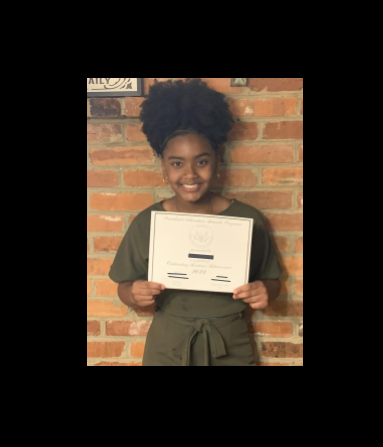Access to Advanced Academics, Creates Access to Opportunity
Why wasn’t she given the same opportunity to try the advanced classes that her peers were?
My twelve year old just started middle school this year. As we were preparing for the start of the school year, purchasing school supplies and planning for her middle school orientation, her schedule came in the mail. She had done exceptionally well in elementary school, earning high marks in all of her classes, consistently passed all of her end of year tests, and had been the recipient of numerous character and academic based awards. She is a high achieving, hard working student. So you can imagine my surprise when a review of her schedule showed no advanced classes. The question that circled my mind was, “Why wasn’t she given the same opportunity to try the advanced classes that her peers were?” Several phone calls and emails to the middle school, her fifth grade teacher, and the middle school counselor to review her previous grades and test scores proved fruitful as she was finally placed into advanced placement coursework. Four weeks into the school year, and her progress report shows she has earned all A’s and one B.
While my story ended well with my daughter being granted access to advanced, rigorous coursework, the same is not always true for other Black students across our nation. Why did I have to make all of those phone calls to prove that my daughter should have an opportunity to engage with an advanced curriculum? Why didn’t her previous teachers or school push for her to be included in the advanced curriculum in sixth grade? What about the students who don’t have someone calling the school on their behalf, pushing to give them access to rigorous opportunity?
Over the past six years, we have listened to parents share their students’ experiences, or the lack thereof, with advanced academics. We have been pushing for a culturally inclusive curriculum via an Advanced Placement African American Studies Program, lamenting over the lack of available seats within advanced placement classes, and confronting educator bias that often keeps Black students from being recommended or referred to advanced academic programs. In essence, North Carolina students and their parents are challenging the lack of equity currently found within advanced academic programs within our schools.
What Are Advanced Academics And Why Are They So Important?
Often referred to as “academic rigor,” curriculum identified as “Advanced Placement (AP),” “Honors,” or “International Baccalaureate (IB)” are considered more challenging, and faster paced than the standard curriculum. Having these courses on your high school transcripts shows admissions counselors that a student is ready for college-level work.
According to The Princeton Review, college admission committees like to see evidence that a student has challenged themselves. Showing successful completion of Advanced Placement (AP), International Baccalaureate (IB), and Honors courses helps students tremendously when trying to get accepted into colleges and/or universities.
Students often begin advanced curriculum from as early as elementary school, and from there are tracked into advanced curriculum in middle and then high school. Not having the opportunity to engage in an advanced curriculum in elementary school, can potentially exclude a student from advanced academics for their entire educational career.
Additionally, with increased access to advanced academics, students are more encouraged, engaged, and excited to be in school. Studies have shown that students develop a sense of belonging and connection to their learning communities, which in turn, supports their safety and wellness.
What Does Current Data Show Us?
Data from The Education Trust tells us: Black students represent 16% of overall enrollment in elementary schools, but only 9% of enrollment in gifted and talented programs nationwide. According to local data from the North Carolina Department of Public Instruction, Black students represent 39.9% of the overall student body, but only 7.8% of the Academically or Intellectually Gifted Students.
In middle school aged students, Black and Latino students are not adequately enrolled in eighth grade algebra. This impacts the mathematics courses they are able to take during high-school, which then determines the level of “rigor” or academic challenge they are able to show on their transcripts.
For high school aged students, Black students make up 15% of high schoolers nationwide, but only 9% of students enrolled in at least one AP course.
How do we create equity in this system?
- Call on your local legislators, school administrators, and teachers. What are their plans to increase access to advanced coursework for black students in their community?
- Identify and name the barriers that exist. What process or system within your students’ learning community is acting as a barrier or obstacle, keeping Black students out of advanced coursework.
- Identify the need. Does your learning community need more advanced course offerings or more available seats within current programs and courses? Work to fill that need and demand that school leaders do as well.
- Support students in preparing for advanced coursework. Increase funding and resources for public education, especially early childhood education, elementary, and middle school programs. Hire and retain highly qualified teachers, particularly teachers of color. Hire more teachers to ensure smaller class sizes, and more opportunities for one-on-one learning. Differentiate within the classroom, to expose all students to rigorous curriculum.
The bottom line.
When there are barriers to accessing advanced academics, there are also barriers to accessing opportunity. With increased access to advanced academics, students are encouraged, engaged, and excited to be in school. By increasing access to advanced academics, we will increase their access to opportunity.
Vanessa Clinton, parent

